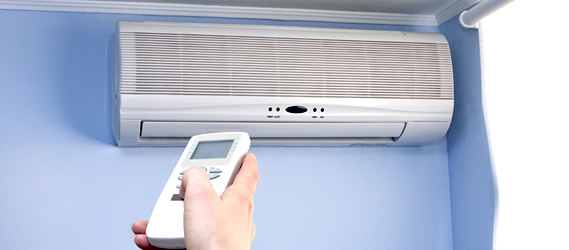Air conditioning Contractors - Important Issues to Keep in Mind

What is an air conditioning contractor? Air conditioning contractors or sometimes known as HVAC contractors (Heating Ventilation Air Conditioning contractors) - but only if ac contractors installs and maintenance's heating as well and also are called refrigeration contractors and an air conditioning repair contractor - are responsible for installing, tuning up and maintaining central air conditioning systems. In addition, ac contractors helps consumers find ideal air conditioning equipment for use in their homes to better ensure comfort, energy bill savings and long term problem solving for their air conditioning situations. Air conditioning contractors must perform proficiently in handling an entire air conditioning complex system, including but not limited to: ductwork, grilles, registers, dampers and accessories. For newly designed air conditioning units, contractors are responsible for precise measurements and calculations that ensure proper a/c cooling systems sizes and placements as according to a subjective room's space. A typical air conditioning repair contractor (HVAC contractor) makes about 45-60,000 per year.
There are over 80,000 air condition contractors in the U.S. alone. The HVAC contractor industry has a very detailed descriptive job duty list that requires great proficiency, education, training and understanding of HVAC systems. An air conditioning contractor's duties require excessive understanding of the craft in order to successfully accomplish within standard results. There have been many reports of air conditioning contractors who have scammed and ripped off consumers and have left consumers in air conditioning situation ruining. To find the most qualified air condition contractor that meets lawful standards visit: https://www.acca.org/consumer/find-a-contractor.
Although many air conditioning contractors are lawfully certified many aren’t certified by the National Comfort Institute. It is reported that out of the over 80,000 air condition contractors, only 5,000 are certified by the National Comfort Institute. The National Comfort Institute is a certification that proves the air conditioning contractor’s true comfort and efficiency training of a home's comfort system, according to the National Comfort Institute standards - a very honorable institution with high trustworthy standards, that has trained air conditioning contractors how to differentiate their business from other air conditioning repair contractor businesses as more safe, knowledgeable, proficient and valuable, in realms of air conditioning contracting. It is not required by law for contractors to obtain a National Comfort Institute certificate, but contractors who have obtained such certificate, has a huge air conditioning contracting advantage over those who do not have one. For more information on this certificate please visit: https://www.nationalcomfortinstitute.com/index.cfm?.
It is required by law that every air condition contractor is licensed and educated on procedures of recycling and handling refrigerants such as Freon. It is first required by ac contractors (refrigeration contractors) to attend college or trade school and acquire on the job training, before qualifying for an air conditioning contractor license, this way air conditioning contractors can truly and proficiently understand blueprints, ductwork and various air conditioning systems before going out in the field alone. Check with your local state on air conditioning schooling years required in order to qualify for an air conditioning license, but it is not necessary in any state to acquire at a bachelor's degree.
A typical air conditioning job requires that the technician has knowledge on using specific tools and equipment to get their job done. These particular tools and equipments are but not limited to: Refrigerant Detectors - Locates CFC, HFC, and HCFC gas leaks Anemometers - Test and Balances Ventilation. Fluke Multi meter - Measures pressure, velocity, and airflow. Barometers - Measures air volume. Toxic Gas Detector - Senses combustible and toxic gas leaks. Duct hole cutter - ,Cuts round holes into duct material. Duct Stretcher - Holds ducts still during duct connections. Snap Lock Punch - Makes impressions in ducts for convenient duct to duct contacts,
The various types of AC systems that air conditioning contractors must work with are the following:Window Air Conditioning System - cooling coil, compressor, condenser, expansion valve/coil and evaporator are all located within a single box unit and placed in a window. Cools a single room.Split Air Conditioning - Consist of both an outdoor and indoor unit. The outdoor unit includes the compressor, condenser and expansion valve, and the indoor unit includes the cooling coil and the cooling fan. Works on the inside without the need to place in a window. Cools one to two rooms. Packaged Air Conditioning - Can either include cooling coil, compressor, condenser, expansion valve/coil and evaporator in one unit that distributes air blow through air ducts or a compressor and condenser in a case which passes air through each room's unit that includes the cooling coil and expansion valve. Cools multiple rooms.Central Air Conditioning - Used to chill bigger buildings such as gymnasiums, schools, theatres, etc. Consists of one unit that can distribute 100's of tons of a/c, which allocates air through building’s ventilation system throughout multiple rooms.
Every qualified air condition contractor should be proficient in installing, tuning up and maintaining each and every one of the mentioned air conditioning systems and able to properly handle the above mentioned tools and equipment well.
Throughout an air conditioning contractor job description and requirements, air condition contractors are a market value until otherwise reported as invaluable.
Request Free Quotes
- Alabama
- Alaska
- Arizona
- Arkansas
- California
- Colorado
- Connecticut
- Delaware
- District of Columbia
- Florida
- Georgia
- Hawaii
- Idaho
- Illinois
- Indiana
- Iowa
- Kansas
- Kentucky
- Louisiana
- Maine
- Maryland
- Massachusetts
- Michigan
- Minnesota
- Mississippi
- Missouri
- Montana
- Nebraska
- Nevada
- New Hampshire
- New Jersey
- New Mexico
- New York
- North Carolina
- North Dakota
- Ohio
- Oklahoma
- Oregon
- Pennsylvania
- Rhode Island
- South Carolina
- South Dakota
- Tennessee
- Texas
- Utah
- Vermont
- Virginia
- Washington
- West Virginia
- Wisconsin
- Wyoming

